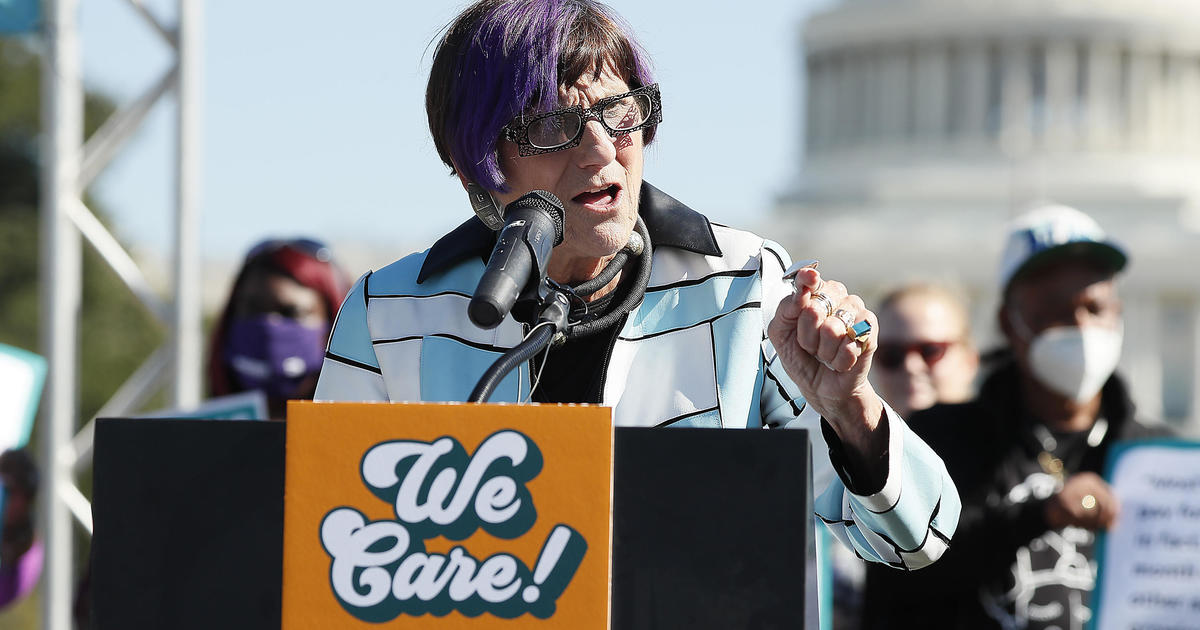Quick bit: This month, the Treasury Department distributed more than $15 billion in payments to families of 61 million children.
Full Story:
As lawmakers work to scale back President Biden’s $3.5 trillion social spending plan, a proposed extension of the monthly child tax credit payments passed by Democrats in the American Rescue Plan may be cut short.
Democrats are trying to trim the Build Back Better bill to roughly $1.75 to $1.9 trillion because some centrist Democrats objected to its high price. As a result, the monthly payments tens of millions of families are receiving — adding up to as much as $3,600 annually per child — may only be extended for a year or two, instead of the additional four years advocated by the White House, according to multiple people familiar with the discussions. Democrats need every single member in the Senate for the final legislation to pass since it is nearly certain they won’t have any Republican support.
Longtime child tax credit advocates, such Democratic Congresswoman Rosa DeLauro, called a one-year extension a “very big mistake,” and said Democrats could end up missing an opportunity to lift children out of poverty. DeLauro calls the expanded benefit “Social Security for children” and questioned why it should be treated differently from Social Security for seniors.
“If you don’t put this on a long-term trajectory, you’re going to result in millions of children being thrown back into poverty,” DeLauro said in an interview.
Rep. Rosa DeLauro (D-CT) along with members of Congress, parents and caregiving advocates hold a press conference supporting Build Back Better investments in home care, childcare, paid leave and expanded CTC payments in front of the U.S. Capitol Building on October 21, 2021 in Washington, DC.
Paul Morigi / Getty Images for MomsRising Together
Democrats first expanded the credit in the American Rescue Plan, which passed along party lines in March. In it, qualifying families with children under age 6 could receive up to $3,600 annually per child, which is an increase from $2,000 per child under the 2017 Tax Cuts and Jobs Act. Families with children between ages 6-17 are eligible to receive up to $3,000 annually per child. The expansion also made the credit fully refundable and broke half of it down into monthly payments for the second half of 2021. When a tax credit is “refundable,” even those with little or no income are eligible for the money..
“The most critical piece of legislation for very low income families is that it stays fully refundable,” said Elaine Maag of the Urban-Brookings Tax Policy Center. “What this means is that even the very lowest income families receive the full value of the credit. Otherwise we go back to a system where about a third of children receive only part of the child tax credit and it’s the lowest income third of children.”
The impacts of the expanded child tax credit included in the American Rescue Plan have been significant, according to multiple estimates. This month, the Treasury Department distributed more than $15 billion in payments to families of 61 million children.
The Center on Poverty and Social Policy at Columbia University found the first monthly expanded child tax credit payments in July kept 3 million children above the poverty line. It kept more than 3.5 million children out of poverty in August. The center has estimated the expanded child tax credit could reduce child poverty by up to 40%. If the payments are taken away, depending on the economic landscape, millions of kids could be plunged back into poverty.
The Social Policy Institute at Washington University in St. Louis found that more than 50% of families used the money on food, more than 35% used it to pay essential bills, nearly 30% used it on clothing, 27% used it on rent or mortgages and 26% put it toward school expenses.
“There’s a ton of anecdotal stories as I talk to families about being able to afford diapers or school supplies or gasoline,” Congresswoman Suzan DelBene of Washington said in an interview. “The flexibility of the child tax credit has been important to help families meet the needs that they have to be able to take care of their kids.”
Democratic Senator Cory Booker of New Jersey said he spoke Mr. Biden this week and cautioned that the details of extending the expanded child tax credit have not been finalized. He said there is a “good chance” that the credit will have full refundability and that it will be permanent, describing the president as a “refreshing ally” on the issue.
“There’s a chance that we can get more than one year,” Booker said in an interview. “A lot of this is still going on, and clearly I’m going to press for as much as I can because this credit has made a powerful difference in people’s lives.”
But Democratic Senator Joe Manchin of West Virginia previously called for implementing an income cap for families receiving the benefit, which would further limit eligibility, according to an Axios report. Other Democrats have pushed back.
If the expanded child tax credit payments were capped for families with an income of $60,000, which is what Manchin reportedly floated, more than 37 million children would be cut off from payments, according to analysis by the libertarian Niskanen Center. Just over 24.5 million children would receive the payments, down from the nearly 62 million children currently receiving them.
Lawmakers also disagree about whether there should be work requirements for the child tax credit payments, which champions of the tax credit and policy experts both reject, saying the whole reason for the benefit is helping children.
“It’s going to be there, and it’s going to be there without work requirements because parenting is work,” said Democratic Senator Sherrod Brown of Ohio.
Trending News
© 2021 CBS Interactive Inc. All Rights Reserved.
Manatee Herald shared this article. Click here to Read More







